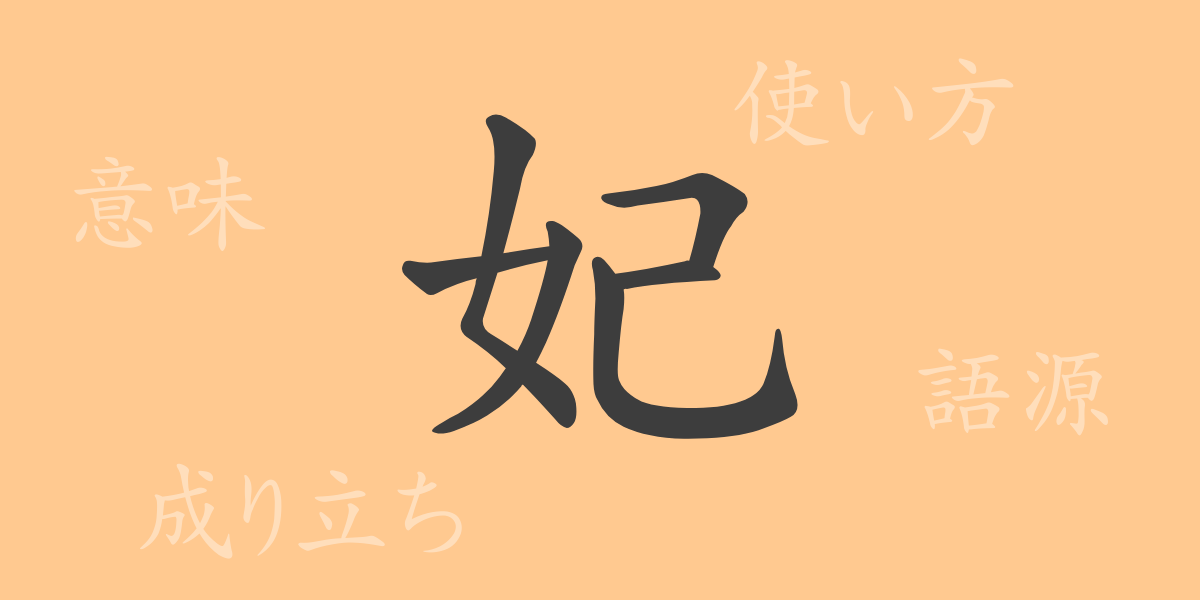Japan’s rich written culture is imbued with history and meaning in each kanji character. Among the commonly used kanji, “妃” (hi) has played a significant role in Japan’s history and culture, accompanied by its beautiful resonance. This article delves into the origins, meanings, uses, and even idioms and proverbs associated with “妃” (hi), uncovering its allure.
Origin of 妃 (hi)
To explore the origin of the kanji “妃” (hi), we need to trace back to ancient Chinese characters. This kanji combines the radical “女” (onna), meaning woman, with “己” (ki), which signifies beauty. It has come to be used as a term referring to a beautiful woman, particularly the wife of a king or emperor.
Meaning and Usage of 妃 (hi)
“妃” (hi) is generally known as a term referring to the consort of an emperor or king, such as an empress or queen. However, its usage extends beyond this, often metaphorically representing a beautiful or respectable woman. Additionally, it can be used to denote women of certain statuses.
Pronunciation, Stroke Count, and Radical of 妃 (hi)
Here is a breakdown of the basic information about the kanji “妃” (hi):
- Pronunciation: The on’yomi (Chinese reading) is “hi”; there is no specific kun’yomi (Japanese reading).
- Stroke Count: It consists of 6 strokes in total.
- Radical: The radical is 女 (onna-hen), which means woman.
Idioms, Phrases, and Proverbs Using 妃 (hi) and Their Meanings
There are numerous idioms, phrases, and proverbs in Japanese that include “妃” (hi). For example, “王妃” (ouhi) refers to the wife of a king, and “皇妃” (kouhi) denotes the wife of an emperor. Additionally, “妃殿下” (hidenka) is used as an honorific title for royal women. These terms symbolize respect and authority.
Summary of 妃 (hi)
The kanji “妃” (hi) has long been used to symbolize noble women, encapsulating beauty, respect, and authority. This single character reflects a deep cultural background in the Japanese language, far beyond its mere written form. The use of “妃” (hi) will continue to be cherished in Japan’s language and culture.

























